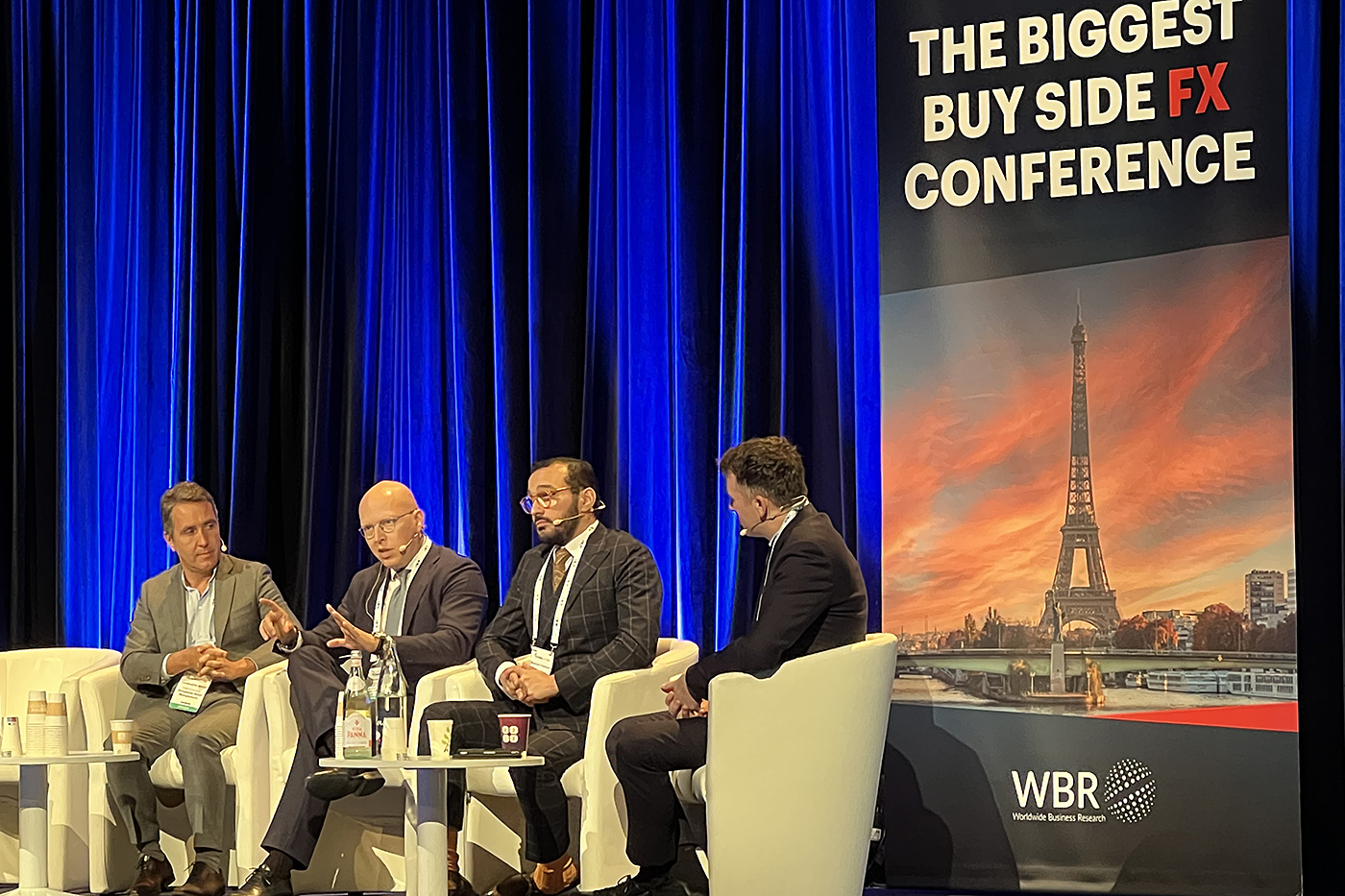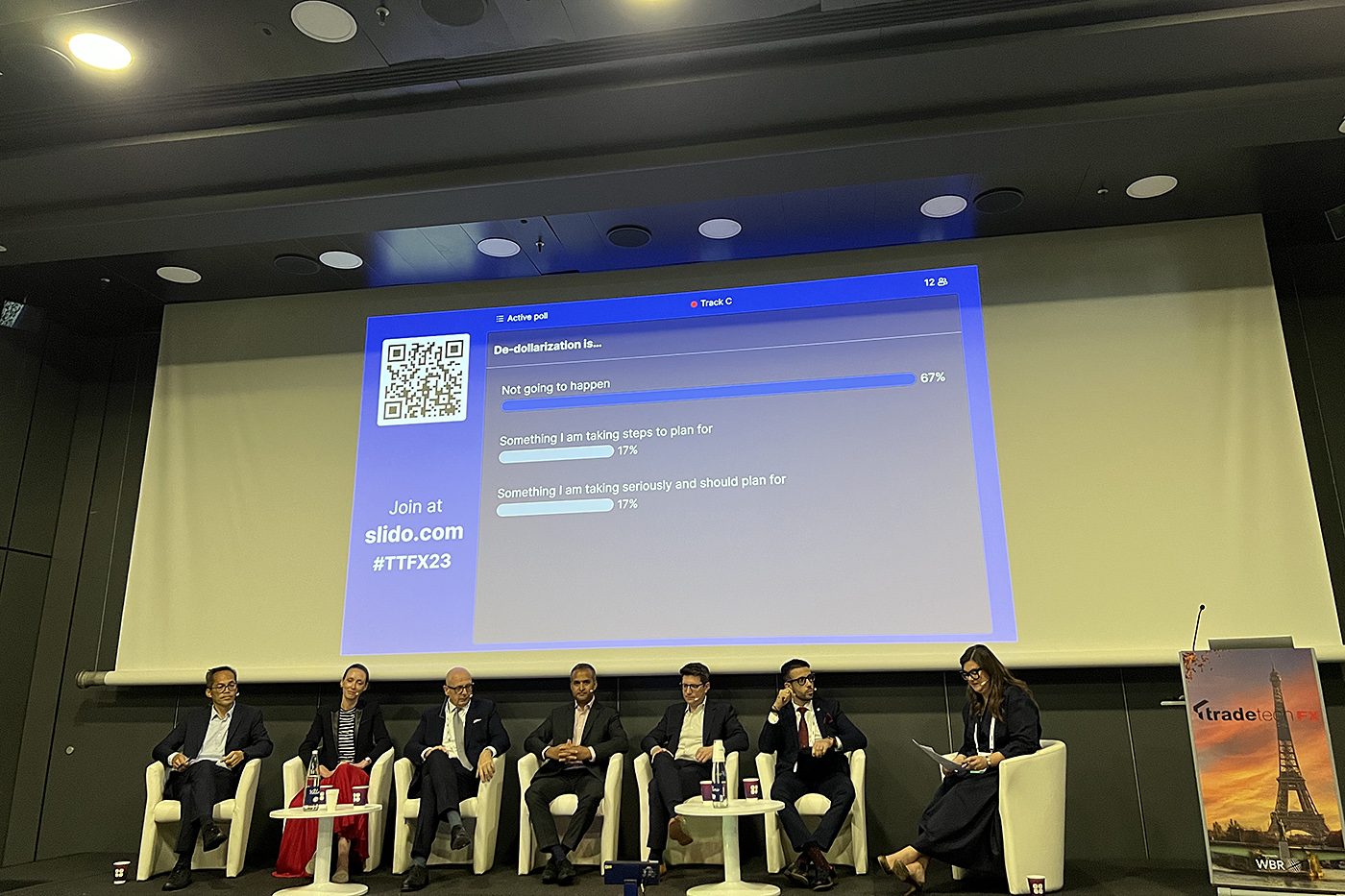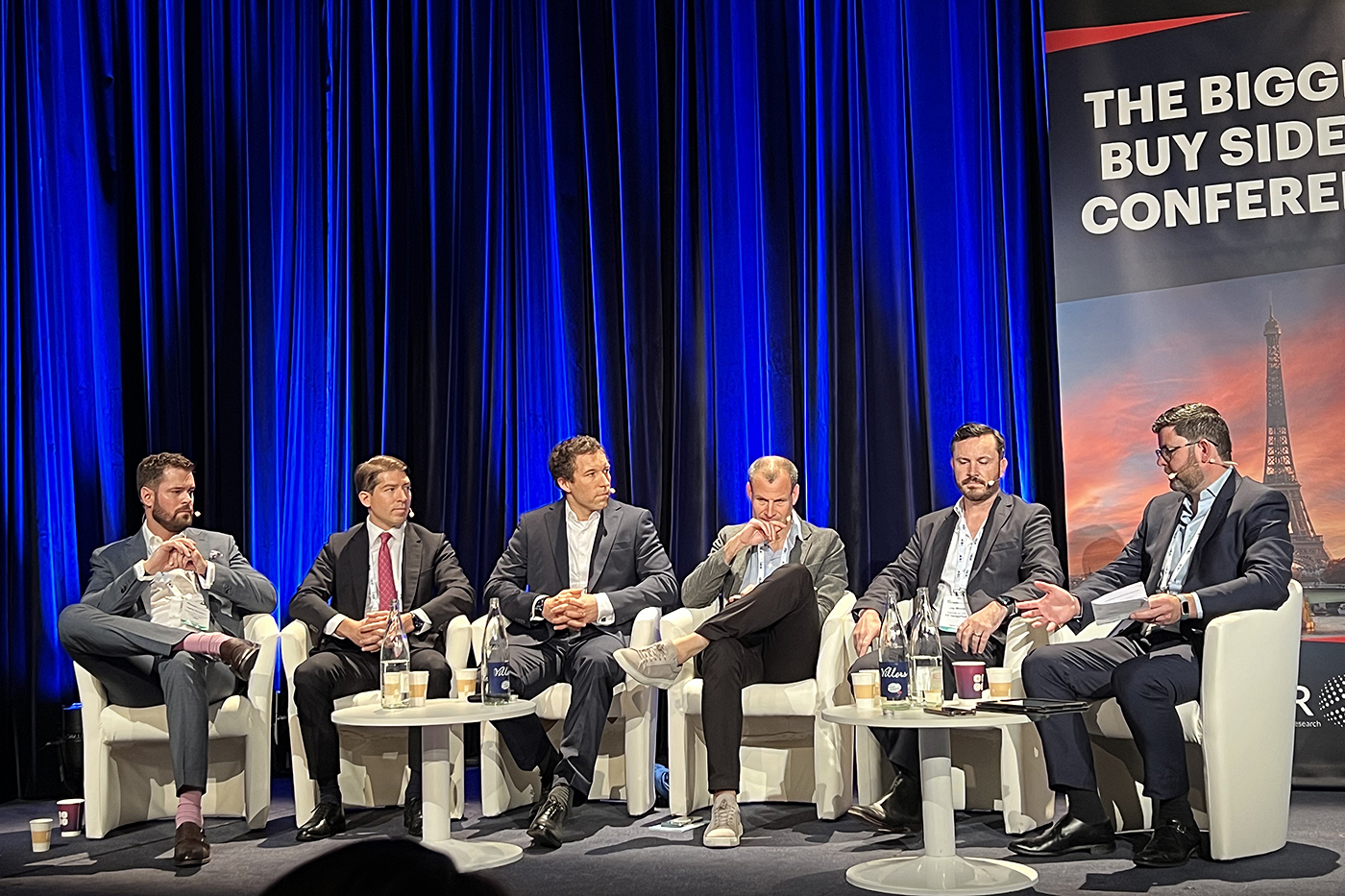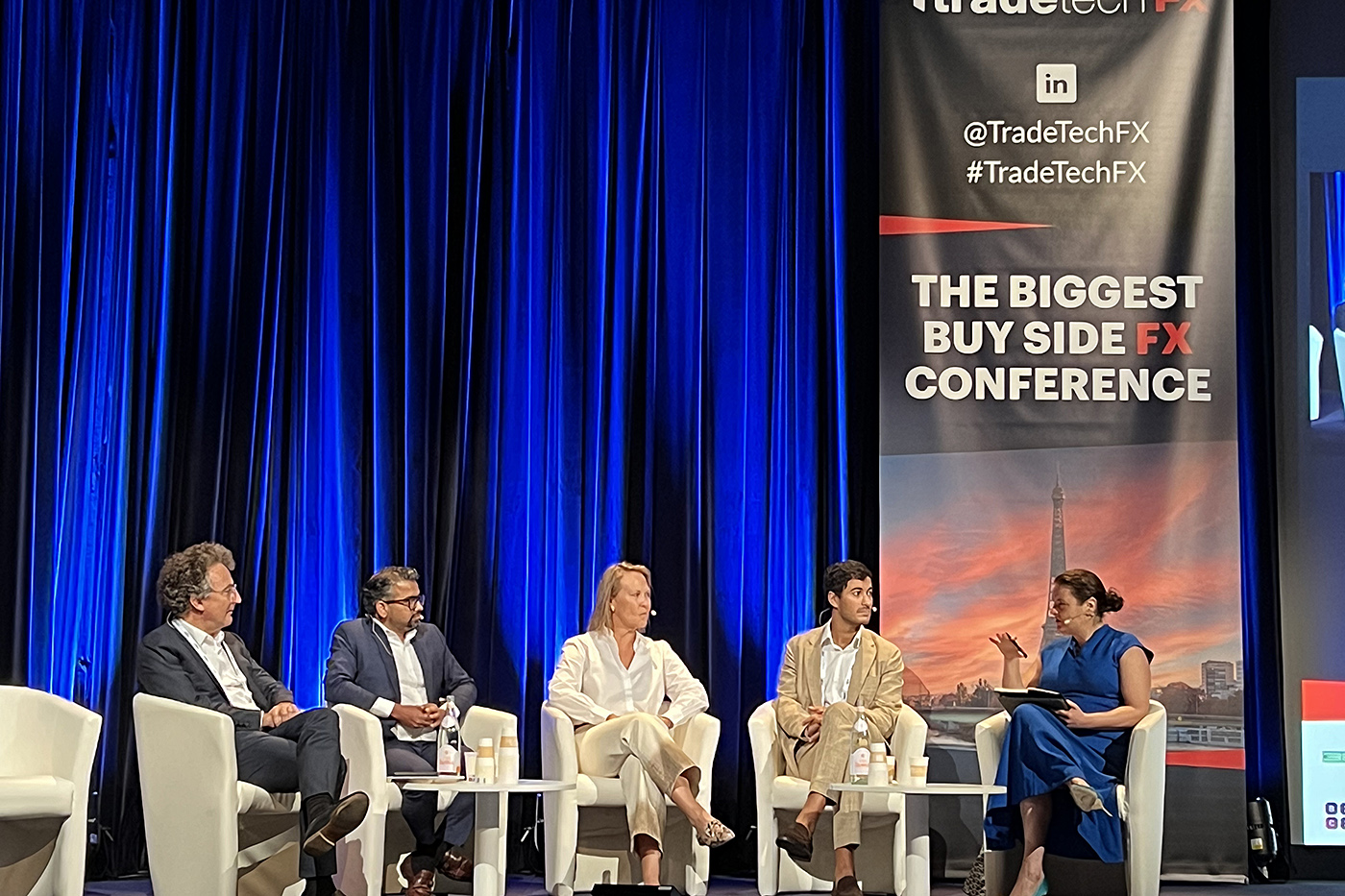
I’ve been in markets for close to twenty years. What has been my persistent takeaway, aside from the fact that there’s always more to learn about markets, is that whilst markets do change, themes do reoccur. It’s been nearly a decade since I first spoke at a TradeTech FX event. I thought it would be an interesting exercise to look at the topics which were covered back at my TradeTech FX event. So searching through my e-mails, I managed to find the agenda back from that first event. In terms of market themes, there were topics around best execution, TCA and then impending MiFID II regulations, CTAs impact on the market, whether there would inflation or deflation, and so on.
If we roll forward a decade to the latest TradeTech FX conference in Paris last week, some themes have certainly persisted! Notably, there was still a lot of discussion on how to do best execution and how to measure this with TCA. Of course, these days, we have much more data and tools in order to do TCA, and we have firms like TradeFeedr, where you can do peer group analysis to do your own TCA. Many of the discussions around benchmarking also moved purely from looking at FX spot, to other FX markets such FX swaps, where there is less transparency. Discussions around market drivers this time around (perhaps unsurprisingly!) revolved around inflation and central banks. Over the coming paragraphs, I’ll try to give a few more takeaways from the discussions around the event.

The conference was opened with a panel on tackling inflation, shifting central bank policies and FX, with panellists, Altaf Kassam (State Street), Brian Mangwiro (Baring Asset Management) and Laura Cooper (BlackRock), alongside Peter Kinsella (UBP) as moderator. Kassam made the point that during QE, things were broadly simpler, with buy the dip and selling vol, as broad themes. Volatility was now back. Cooper, noted how we are seeing a new macro regime. The pandemic has sparked a significant shock. We were now in a higher inflation regime, and with other factors like net zero and demographic changes, yields were going to be higher for longer. Mangwiro suggested we are close to peak Fed rates, and leading indicators turning lower. There was broad consensus amongst the panellists of curve steepening.
A panel more focused on macroeconomic forecasts, was also moderated by Peter Kinsella (UBP), with panellists, Christophe Morel (Groupama), Florian Ielpo (Lombard Odier) and Mabrouk Chetouane (Natixis). Chetouane recapped how we got here in inflation, notably a supply shock and demand shock. Now there was a negative input from energy price drops, but core inflation was still sticky especially in Eurozone. There was a new era of scarcity in energy and labour markets. Morel also reiterated this point about scarcity, from commodities, human capital and also financial capital, noting we are in a new inflation regime. Ielpo discussed how in the US, you had fiscal policy effectively pulling up growth, whilst monetary policy was attempting to slow it down, and how inflation pressure was still building. On a broad basis, there was some consensus about inflation being an issue. That is somewhat at odds with our inflation forecasting models, at Turnleaf Analytics, which suggests that inflation is likely to be lower over the coming year in most markets.

As befits an FX conference, there always needs to be panel on the dollar outlook! This was moderated by Isabel Albarran (Close Brothers), with panellists Stephen Jen (Eurizon), Caroline Houdril (Schroders), Stefan Hofrichter (Allianz), Kiran Kowshik (Lombard Odier), Samuel Zief (JPM Private Bank) and Gonzalo Canet (ATFX). A debate in markets is how how a soft landing would impact the USD. Houdril noted that whilst a soft landing would be likely negative for the dollar, if the US was doing better than elsewhere, it could support the USD. Albarran felt that the USD would be broader be stronger. In periods where there had been broader based depreciation, there had generally been several factors at play, the USD had been a lower yielder, there had been EM interventions and an impact from terms of trade moves. Currently, obviously, the USD is a higher yielder. For Jen, he noted that there have been two drivers for the USD, notably the Fed and inflation, a now a focus on China, which was new. Before, China had been a high beta play. Whilst there were structural negatives on the dollar, the twin deficits, we don’t tend to play attention to them till there was a cyclical turn. He suggested the USD was 10% overvalued. Kowshik discussed the topic from the perspective of his clients, who were generally EUR and CHF based. If equities fall, EUR tended to weaken. For CHF the situation was trickier, it was low yielding, and has steadily appreciated, and has had its currency account surplus recycled. There was also the factor that FX was a monetary policy tool in Switzerland. The topic of the dollar as a reserve currency also came up, although the consensus was that it was difficult to replace. One important point was that the liquidity in financial sector is what counts for a reserve currency, given that the proportion of financial transactions is 50x the real trade.
A later panel also with Stephen Jen (Eurizon), alongside Bridgette Le Bris (Ostium), Gustavo Mederios (Ashmore) and moderator Roderick Ngotho (Independent) was focused on East Asia. Jen, noted how Mexican exports to USA had passed those from China as a result of reshoring. There was still substantial financial exposure to China, Mederios said, from the vast majority of stocks that Americans own. Indeed, we only need to look at the recent price action in Apple as anecdotal evidence, of how China can impact US companies.
I was also on a panel on active currency strategies panel, alongside Andreas Koenig (Amundi Asset Management), Frederick Fischer (Allianz Global Investors), Achim Walde (Metzler Currency Management) and Roderick Ngotho (Independent). It also included some thoughts on the dollar, where most of the panellists were bullish, I was the odd one out, suggesting some downside, citing that on a relative basis that our inflation forecasts suggested more downside in the US versus the other major economies, which would likely be bearish USD. We also discussed how currency strategies fitting in broadly, in terms of investing. Walde made the point that FX risk was a big component of your returns, citing an example with US stocks over the past few years, where returns for a local investor would have been 300% versus 400% for a Eurozone denominated investor. Whereas FX is often seen as an afterthought, managing it can make a big difference!

As mentioned earlier the topic of execution was also a key part of discussions at the event. There was an enlightening panel on liquidity and market structure, featuring Tgetg Roethlin (UBS), Jay Moore (FX HedgePool), Jeremy Smart (XTX Markets), Simon Osterberg (SEB), Alexander Nowak (JPM) and Gordon Noonan. It was under Chatham House rules, so I’ll just give a broad generalisation of the discussion. One topic that came up several times was that of TCA, and how in spot it is more developed, with solutions like TradeFeedr. However, it was noted that in other areas like swaps TCA isn’t as well developed. In swaps of course it is is more difficult because of the need to understand dynamics around things like broken dates, which a simple interpolation may not necessarily capture if you are trying to create a benchmark. If you do TCA, there needs to be some sort of benchmark to judge against your own executions. There was talk of using a CLOB for swaps, although there might be differing incentives for this amongst market players. This would help solve the data problem associated with swaps.
One thing that I remember on my first TradeTech FX, was that there was a discussion about digital assets. At the time it seemed very exotic! Whilst digital assets are not still mainstream, the market is definitely maturing, and there was a digital assets panel moderated by Eva Szalay, with panellists Yves Choueifaty (TOBAM), Vinay Trivedi (Maxx Trader), Cassandra Cox (LMAX) and Zahreddine Touag (Woorton). One major discussion point was whether the ETF on bitcoin spot would be approved. The consensus was it would be and Choueifaty noted how having the ETF would make it as easy to buy bitcoin as any other asset available as ETFs. Touag also noted that many larger players were getting interested in digital assets.

Where will FX markets be in another decade at TradeTech FX? I’m sure it’ll be an exciting 10 years, but I suspect a lot of the same topics will reoccur, but (to paraphrase Eric Morcambe) not necessarily in the same order!